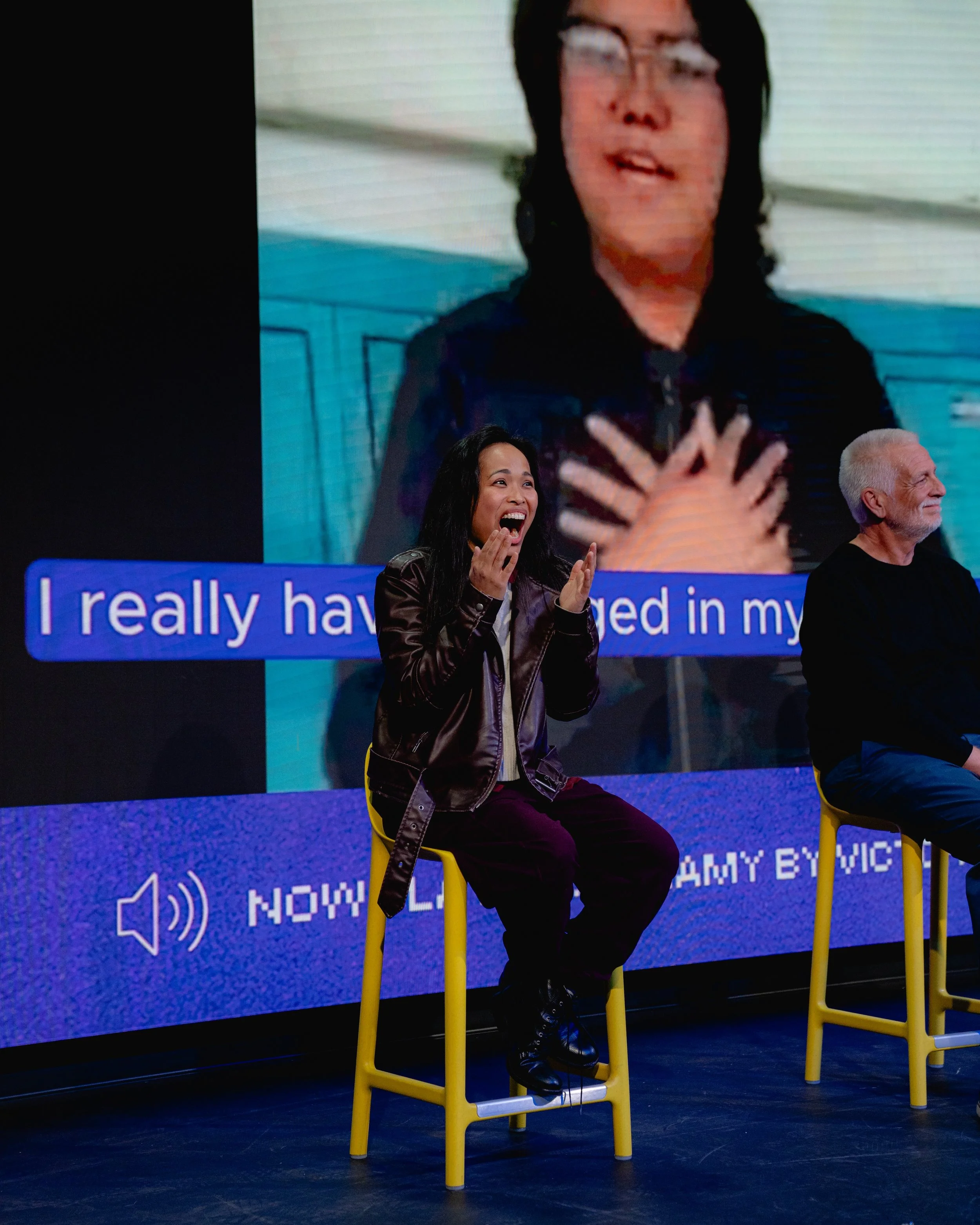Dialed In with Educator Jolly Rodriguez
Jolly Rodriguez is an outstanding music technology teacher at Carson High School in California and one of our honored educators at the 2024 SoCal Beat Battle. She has built a thriving program where students learn to produce, perform, and express themselves with confidence.
Celebrated for her impact in the classroom and beyond, Jolly sat down with us to share her journey into education, how she creates a supportive space for student creativity, and how curriculum tools like YPG help her bring complex music technology concepts to life.
From Psychology to Music Technology
Some teachers know from day one what their career will be, while for others, the path is far more dynamic. Jolly’s career began in psychology and evolved through a deep love of music and production, combined with a strong desire to be part of the student journey.
“I actually have my degree in psychology. I always loved music, and even though I had been singing and performing since I was very little, I never actually formally trained. So after I graduated with my bachelors in Psychology, I went back to school, and I was majoring in record production at Long Beach City College. And then our program at Long Beach City College just ended! So I just did a lot of singing and songwriting, and started trying to do more music production on my own on the side.
I got my teaching credential for music education, and then, since I already had a performance background, I also got my CTE . There was a need to have a music technology program [at my school], and the principal at the time knew that I had a music background, and [asked] if I wanted to be a part of that. I was like, yeah, that would be cool!
I just love being a teacher because I like being part of students' journeys. So I think in any context that I get to do that, I'm going to be happy, whether it's through singing, dancing, martial arts, music, whatever it is, awesome. I love that.”
The Value of Productive Struggle in the Classroom
Jolly teaches several music production and instrumental music courses at Carson High School. While creating original music with technology can feel intimidating, she emphasizes that learning to work through imperfection is a vital part of the creative process and a skill she intentionally builds into her teaching.
“For my students who have zero experience, having them start off with loops is extremely helpful. Eventually, when they have to make their own music from scratch (creating a beat, bassline, their own chords), that's where it can be extremely difficult for my students. But I don't think that's a bad thing because students need to learn productive struggle.
It's a disservice to our students to have everything just be peachy keen all the time. Productive struggle, learning that you can get through it and not everything you're going to make is going to be gold, is an extremely important thing that they need to learn from an artistic standpoint. Sometimes it’s just about doing the motions, understanding it's not going to be the best. Then they can try again, eventually getting better and better, to the point where they are happy [with their work] and have their own artistic style.”
Building a Supportive Classroom Community
Classroom community isn't just an afterthought, it’s the cornerstone of everything Jolly does. In her classroom, every student gets treated with dignity and respect, no matter their background, behavior, or academic standing. Jolly has created a zero-tolerance policy for disrespect, making it clear from day one that kindness isn’t optional, it’s the foundation. This approach ensures that students feel safe not only emotionally, but also creatively. It also reflects a core principle of YPG, which prioritizes inclusive and respectful learning environments where all students can thrive and confidently explore their creative vision.
“The sense of community in my classroom takes top priority. Period. I always tell the students that I'm always going to treat them with respect regardless of what grade they have. I don't care if they're an A student or an F student. Everyone in this classroom deserves respect and disrespect is not going to be tolerated.
I always model grace, and I make sure that I speak to them with respect and give them the most generous interpretation of that moment. I teach kindness, and if a student has a big blowup in my class, they understand that when they come back into my classroom, I'm not going to judge them for it and I'm not going to allow other people to judge them for it. So that's a big thing for me, for keeping my community safe.”
That culture of grace and respect carries into one of the most vulnerable moments in a music technology class: the listening party.
“When we are doing our listening parties, let's say I have somebody's project up and it's not necessarily the best, or they didn't complete it. I try to be as positive as possible, even though I'm still going to give them a lower grade. I praise them for the things that I can, but I also don't go, “this is amazing” if they only did half the project. This attitude of kindness, understanding and positivity as a teacher has trickled down to my students in regard to the way they treat each other in these listening parties too.”
Teaching with YPG Curricula
Teaching music technology can be daunting, especially for students with little or no background in the subject. YPG’s curriculum and strong teacher support have made a significant impact on Jolly’s teaching.
“YPG has helped me tremendously. Before YPG, I remember thinking, ‘Okay, so how do I teach this!?’ I had a few students who have music experience, but then I had a vast amount of students who were literally starting from zero. Music is difficult, but to put a DAW in front of them is so confusing.
YPG really helped with that process, because I didn't have to do any guesswork. The projects were really well done. It helped me so much, and took so much stress off my back.
I think project-based learning [with YPG] is great, because it allows students to have this foundation, but it also allows them to pick their level of difficulty. They will push themselves to where they need to be and they're challenging themselves the entire time.”
Alongside the curricula, YPG’s extensive lesson plans and pacing guides have also been instrumental in Jolly’s teaching.
“The pacing guides have been extremely helpful because I can plan out the entire school year during the summer before I even need to teach. Because of the pacing guide, if I want to do supplemental stuff, like music theory or ear training, then I can just pop them in. I think I'd be 1000 times more stressed about the curriculum if not for those resources, if I'm being completely honest!”
Advice for New Music Technology Teachers
For educators stepping into music technology for the first time, her advice is clear: start with YPG and let it guide you, just like it did for her.
“Start with YPG! Everything is scaffolded so easily. They really explain things in such an easy way to digest for students.”

